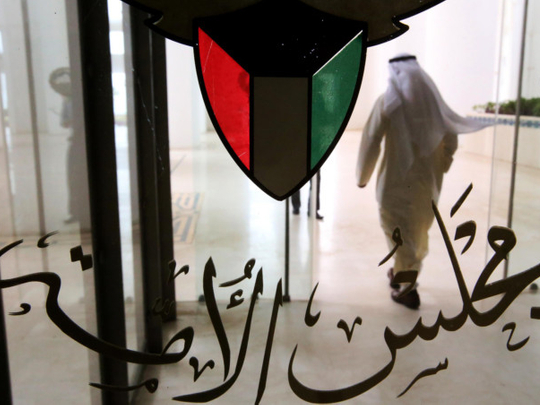
Kuwait City: Kuwait’s cabinet said on Thursday that it has approved a decree setting a legislative poll for July 25 after the constitutional court scrapped parliament and upheld the controversial electoral law.
“The cabinet at an extraordinary session approved a draft decree setting July 25 as the date for parliamentary elections,” State Minister for Cabinet Affairs Shaikh Mohammad Abdullah Al Sabah told the official Kuna news agency.
The decision came after the constitutional court on Sunday scrapped the 50-seat parliament elected on December 1 amid a total boycott by the opposition in protest against an amendment to the electoral law that was confirmed by the court, whose rulings are final.
The ruling paved the way for Kuwait’s second parliamentary election in eight months, and third since February 2012.
The state has been rocked by a series of political crises since early 2006 between MPs and the government.
The ruling on Sunday meant that the next national polls to elect the new lawmakers would be held under the “one voter, one vote” principle, the main reason that made the opposition boycott the last parliamentary elections on December 1.
Kuwaitis said that they accepted the court’s decision and that they would plan their next moves accordingly. However, veteran opposition leader Ahmad Al Saadoon, a former parliament speaker, insisted that the opposition would boycott the next parliamentary elections.
“We ask the Kuwaiti people to boycott the elections because they will assume the responsibility of voting in a terrible parliament,” he said at the end of a meeting he held with key opposition figures on Sunday evening. “We cannot act as false witnesses and be part of a parliament that the authorities want to dominate. This is going to be a long battle and it requires the solidarity of all Kuwaitis,” he said at the meeting.
However, Al Saadon will face the formidable task of convincing the opposition of the merit of the boycott call and the “battle” to change the situation on the ground.
For several political academics, the court ruling meant a new drive towards “a more stable future for Kuwait” and “a new opportunity to take part in the elections following a period of political tension that has alienated the street.”
“The participation in the forthcoming elections will be more intense after several political and tribal forces said that they accepted the ruling by the Constitutional Court even before it was announced,” Abdullah Al Gahnem, a political science professor, said, quoted by Al Watan daily. “Any boycott would have little impact, particularly that the common people are fed up with the political tension that gripped the nation and want stability after the court’s decision. The number of people who attended the latest rallies was weak,” he said.
Ebrahim Al Hadyan, another political sciences professor, said that street tactics would fail.
“All political trends across the spectrum have now a chance to be an active part of the elections,” he said, “The idea of going to the streets to apply pressure will not have the same level of response it had in the past.
- with inputs from AFP











